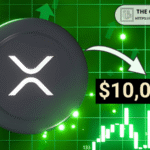Warren Buffett, revered as the “Oracle of Omaha,” continues to leverage his time-tested investment strategies to steer Berkshire Hathaway toward impressive growth. Recently, attention has shifted to three of his stocks that show significant growth potential and one that appears to be stagnating in performance.
Berkshire’s largest holding remains Apple, a company that has provided a staggering return exceeding 750% since Buffett’s initial investment in 2016, not counting dividends. Despite Buffett selling some shares earlier this year, Apple constitutes a substantial portion of Berkshire’s portfolio. Following the recent launch of the iPhone 17, which brought only minor upgrades, the stock faced brief dips. Nonetheless, the introduction of the iPhone Air, notably thinner and lighter than its predecessor, indicates that Apple is poised for a potential revenue boost. With a significant portion of iPhones in circulation being several generations old, the anticipation of a forthcoming upgrade cycle presents a promising outlook for Apple moving forward, making it a smart addition to many investors’ portfolios.
Buffett often emphasizes the importance of acquiring quality companies at fair prices. Currently, Berkshire Hathaway presents a compelling case with a modest valuation of 16.9 times trailing earnings and 11.9 times trailing sales. Amazon, which once held the title of the market’s most expensive stock, has seen its valuation drop to a more reasonable 35.2 times trailing earnings. Despite this adjustment, Amazon continues to exhibit robust growth, particularly through its e-commerce dominance and its cloud computing arm, Amazon Web Services (AWS), which reported an impressive 17% year-over-year revenue growth in the second quarter. This growth, combined with AWS’s high operating margins, solidifies Amazon’s position as a strong investment opportunity under Buffett’s philosophy.
Another company capturing attention is Mastercard, a significant player in the international payment processing landscape. With 1.1 billion Mastercard credit cards contributing to a global purchase volume of $4 trillion in 2023, the company showcases extensive growth potential. Although Mastercard trails behind Visa in overall volume and card issues, the company has outperformed its larger counterpart in terms of revenue and share price growth over the past decade. As global wealth increases and digital infrastructure expands, Mastercard’s growth trajectory looks favorable, making it another attractive option for investors.
On the flip side, Coca-Cola, once a steadfast component of Buffett’s investment strategy, appears to be faltering. While Berkshire Hathaway enjoys substantial annual dividend payments from its Coca-Cola investments made between 1988 and 1994, the company’s growth has stagnated in recent years. Although Coca-Cola continues to increase its dividend yield to around 3%, it has not kept pace with broader market returns. Unless one prioritizes dividend income, Coca-Cola is increasingly seen as a stock to avoid, contrasting sharply with the growth prospects of Apple, Amazon, and Mastercard.
In summary, while Berkshire Hathaway’s portfolio boasts several promising stocks that align with Buffett’s investment principles, investors should exercise caution with Coca-Cola as it struggles to maintain its competitive edge in a rapidly evolving market.







